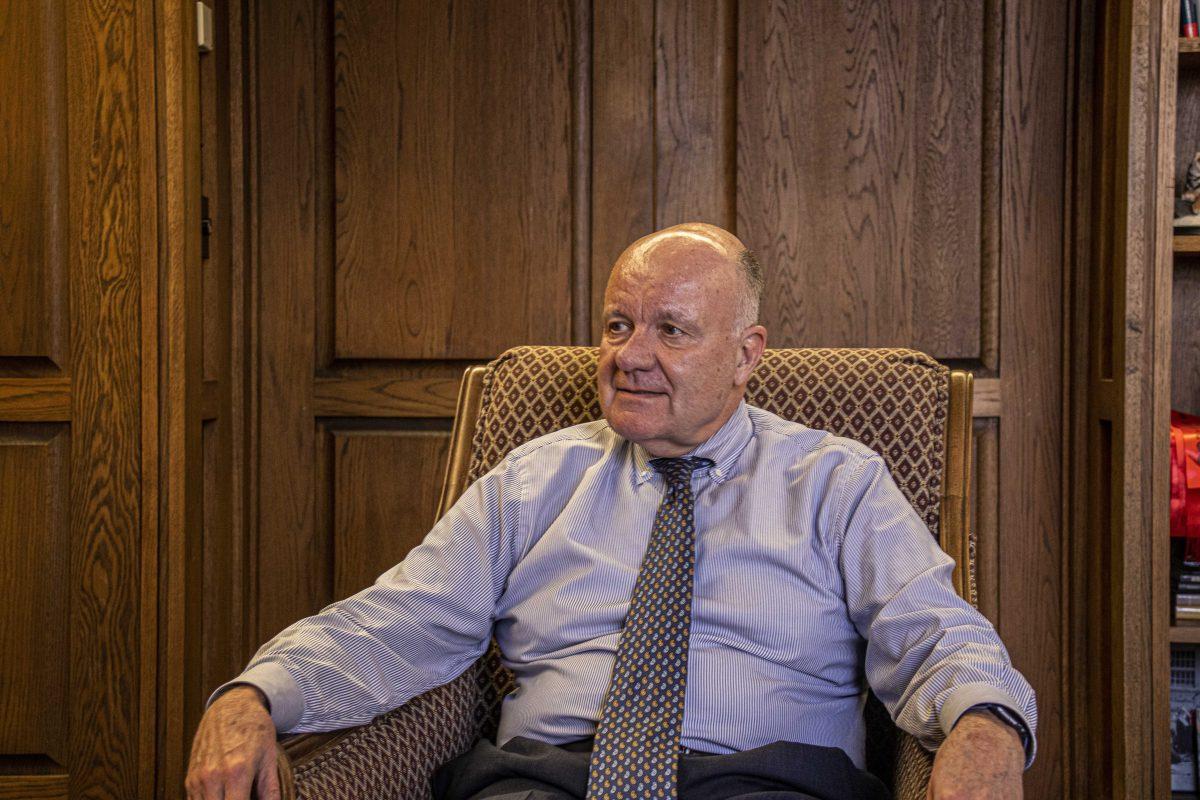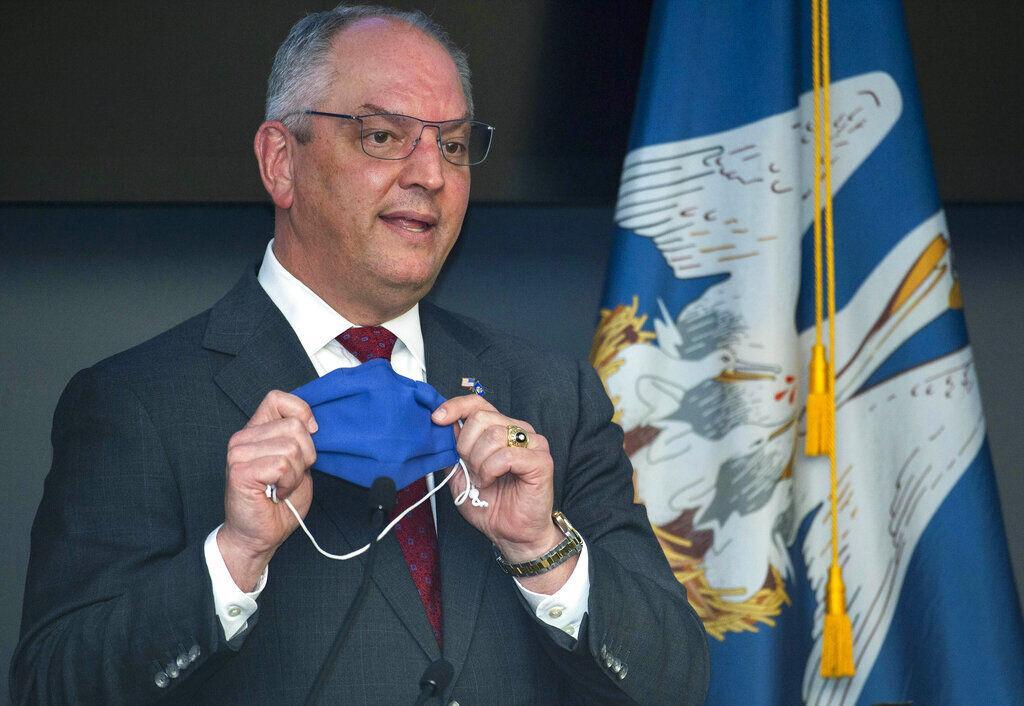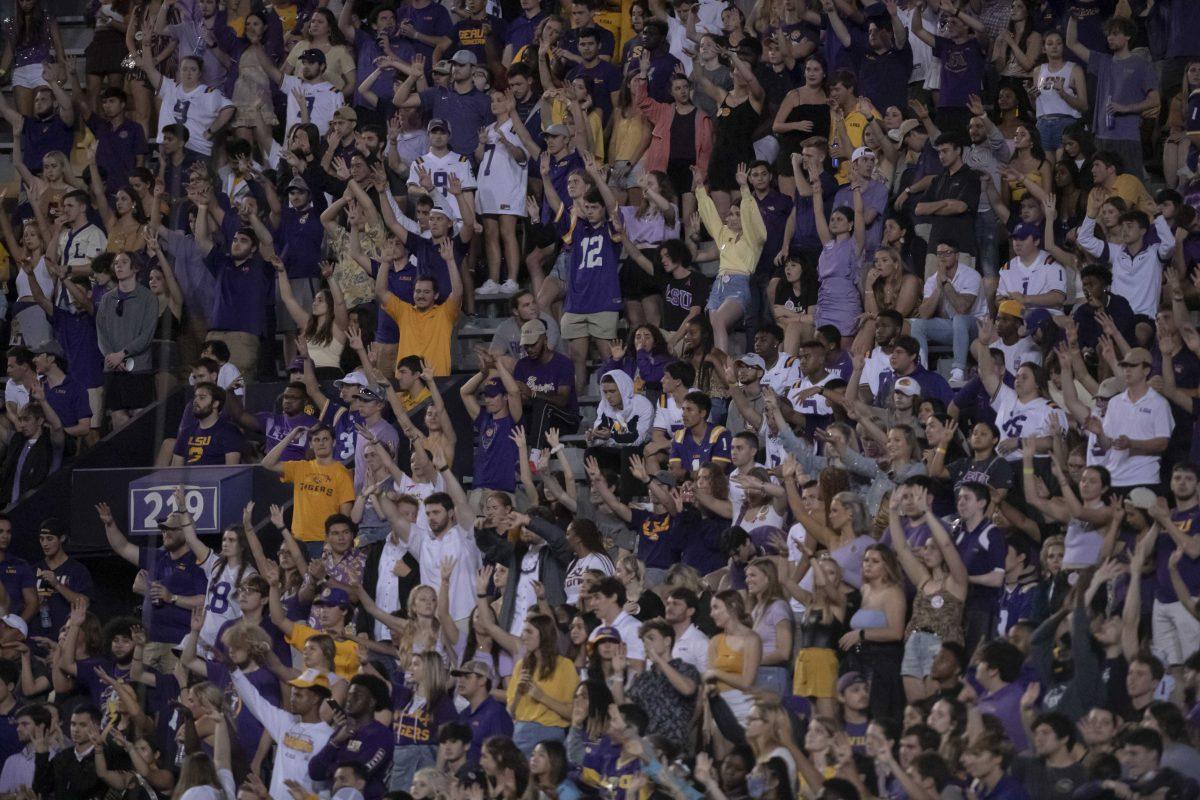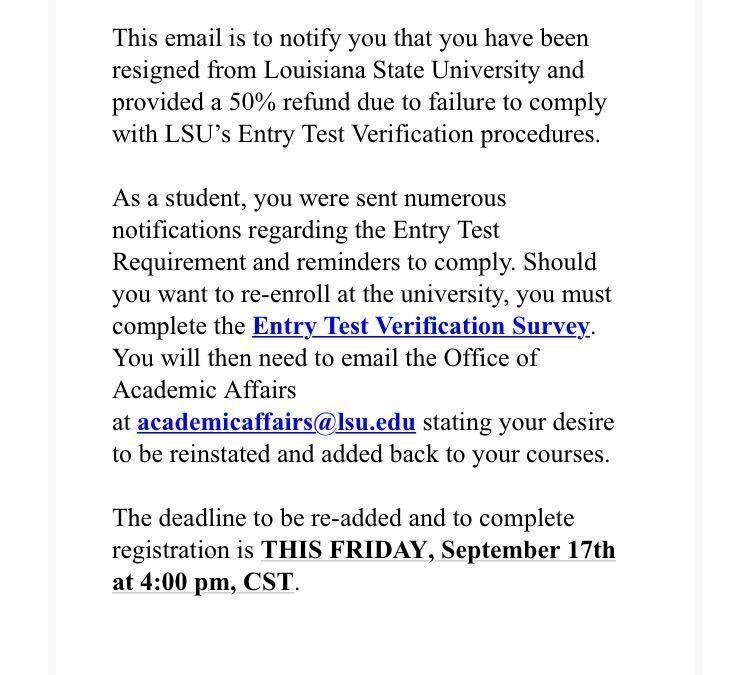LSU Interim President Tom Galligan spoke to the Baton Rouge Press Club Monday afternoon and discussed plans to reopen the University in the fall and how COVID-19 will affect football, financial aid, commencement and the fall semester.
Galligan gave a timeline of the University’s response to the COVID-19 pandemic before answering questions. As for the fall semester and football season, the focus is on safety.
“We will make the best decisions possible based on the best data available,” Galligan said. “Our guide posts will be safety and fulfilling our teaching, research and service missions.”
The date set for the beginning of the fall semester has not changed as of now, but all options will be considered for the return to campus to be as safe as possible. Galligan said that means the start date could be pushed back, or classes could start remotely and then transition to in-person classes later in the semester.
“Are we going to be open in the fall? We are absolutely planning on being open in the fall,” he said. “We need to get back to business, but we need to get back to business safely.”
Some large classes will likely occur online instead of a large lecture hall, and smaller classes will probably occur in larger rooms.
“We will do everything we can to get back to campus, to get back to school and to do so safely,” Galligan said.
He said the return to work at the University before classes begin will be gradual and will only begin when it is safe to do so.
“I think we won’t see LSU going from closed to open overnight,” Galligan said. “That’ll be a gradual process.”
Galligan said the University is analyzing residential life options for the fall semester as well. He said residence halls with hall-style or common bathrooms are being analyzed to determine their safety.
There are about 1,000 students still living on campus who could not go home, Galligan said. These students are living in apartments with their own bathrooms. For those students with meal plans, the dining halls are producing “grab-and-go meals.”
Galligan said football will return when it’s safe but did not give a definite date of the start of the season. He said sports in Louisiana and at the University are a key part to the state’s culture.
“We won’t come back until it’s safe,” he said. “There are smarter people than me all over America analyzing those issues and scheduling issues right now.”
Galligan said he meets with the SEC chancellors and presidents about once a week for a phone conference to plan for fall sports. As for allowing fans in the stadium, it all depends on what’s safe.
Galligan thinks it’s important to play the season, but it may not be played as it has been in previous years.
“It may be a little different in some ways, but I think it’s important to play the season, and I hope we do so,” Galligan said.
LSU postponed spring commencement ceremonies on March 24, which were previously scheduled for early May.
“We are not cancelling commencement,” he said. “We are going to celebrate the class of 2020 in a big, appropriate way, but only when it is safe to do so. And friends, safety has been our guiding light throughout.”
He acknowledged that there will be financial uncertainty and disruption, but said the University is already planning for that.
“We can’t control the state budget, but what we can control is our recruitment and our retention,” Galligan said. “Right now, we are setting records for applications to the flagship in Baton Rouge.”
Galligan said right now LSU is encountering record numbers of applications, deposits and students attending events for admitted students. He said the University will work hard to bring in more students.
He anticipates COVID-19 will have an impact on LSU’s financial aid packages, but he does not anticipate TOPS being affected. The University may face less funding from the state than it had hoped for, but it is planning for that.
LSU received $27.1 million in funding from round one of the CARES Act, with $18 million allocated to the Baton Rouge campus. Galligan said half of that total will be allocated to students directly.
“Need will be a big factor in how we make those distributions,” Galligan said.
Galligan is prepared to stay in the position of interim president as long as the University needs him, but his goal is still to return back to the Law Center. He said he’s inspired by the people around him and has learned a lot from the position.
“Cooperation among the eight jewels in the LSU crown has never been closer than it is in this moment,” Galligan said.
LSU leadership met on March 11 to discuss transitioning to a remote learning environment. There were 13 confirmed cases in Louisiana at the time, but none in Baton Rouge when the decision was made. At 5:30 p.m. that afternoon, Gov. Edwards declared a public health emergency.
On March 12, LSU announced it would be moving to remote classes beginning March 30.
LSU announced on March 13 that all events of 30 or more people were cancelled through the end of May, including commencement. Galligan said this was two days before the CDC recommended limiting gatherings to 50 or fewer people.
On that same day, LSU began moving as many students as possible off campus. The University had its first confirmed case of COVID-19 on March 20, but that student has since recovered.
“To put it lightly, transitioning to remote working, online education, was a herculean task, and I want to take my hat off and thank our faculty, our staff and our students,” Galligan said.
Galligan said LSU has tried to make every decision based on the safety of faculty, staff and students.
“LSU has always been a part of people’s lives in Louisiana, a positive part of their lives,” Galligan said. “Crises like these pose challenges and disruptions, but they have also brought us together.”











